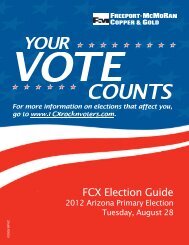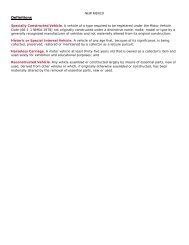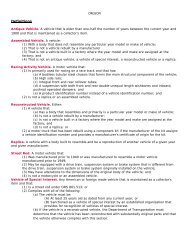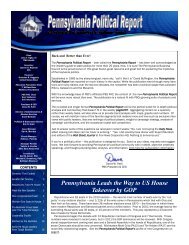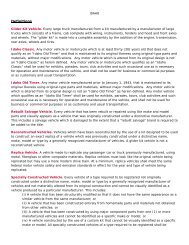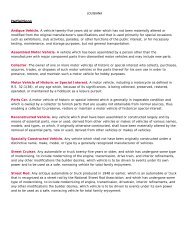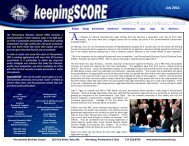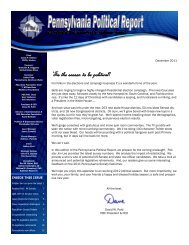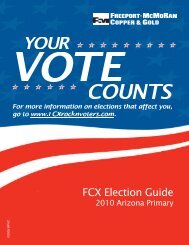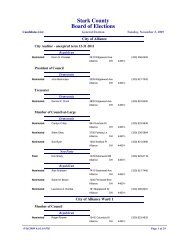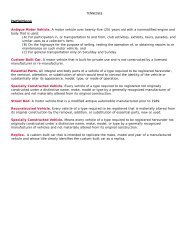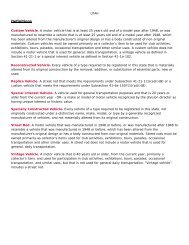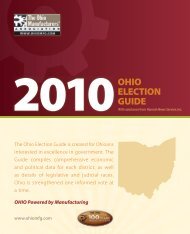keepingSCORE January 2012 - BIPAC
keepingSCORE January 2012 - BIPAC
keepingSCORE January 2012 - BIPAC
You also want an ePaper? Increase the reach of your titles
YUMPU automatically turns print PDFs into web optimized ePapers that Google loves.
Budget Energy Environment Health Care Infrastructure Labor Legal Tax Workforce<br />
DEFINING SUCCESS<br />
Maintain the phase-out of the Capital Stock & Franchise Tax.<br />
And then eliminate the tax altogether.<br />
Adopt the Single Sales Factor for the apportionment of corporate<br />
revenue subject to PA’s corporate net income tax.<br />
Eliminate the cap on the deductibility of net operating losses.<br />
Oppose the implementation of ―Combined Reporting.‖<br />
GETTING IN THE GAME<br />
1.) Call Senator Mensch at 717-787-3110 to say ―Thank you!‖<br />
for his legislative tax package. Ask how you can help advance<br />
his legislation as part of this year’s budget process.<br />
2.) Read the ―Delaware Loophole‖ legislation and decide for<br />
yourself whether the good outweighs the bad. You can find<br />
Reed’s legislation on the PBC website by clicking here.<br />
The Senate Finance Committee recently reported out two bills intended to remove two provisions of PA’s<br />
Personal Income Tax (PIT) which are particularly harmful to smaller businesses that pay this tax. Both bills<br />
were re-reported to Appropriations and may well become part of the budget package:<br />
<br />
<br />
SB 562, introduced by Senator Jake Corman (R-Centre), amends the PIT to allow losses in one category<br />
of income to be offset against another category of income. This bill would bring the PIT into line<br />
with the Federal income tax which currently allows such offsets.<br />
SB 1354, introduced by Senator Jake Corman (R-Centre), provides a loss carry-forward provision for<br />
the PIT. This bill will allow a business owner paying the PIT to carry losses forward into future business<br />
years thereby offsetting losses in the early years of a business against income earned in later years.<br />
This bill will also bring PA’s PIT into conformity with the Federal income tax. This bill was also introduced<br />
by Senator Corman and will most likely be referred to the Appropriations Committee for a fiscal<br />
note.<br />
A bipartisan group of House members led by Republican Policy Committee Chairman Dave Reed (Indiana)<br />
and Eugene DePasquale (D-York) introduced legislation in mid-<strong>January</strong> that would seek to ―close the<br />
Delaware Loophole‖ and use the resulting revenue to adopt the Single Sales Factor for the state’s Corporate<br />
Net Income (CNI) tax, phase-in 100 percent deductibility of net operating losses, and eventually reduce<br />
the 9.9 percent CNI rate to something closer to the national average. The tax reforms are much needed<br />
and very much appreciated proposals. But, the business community is wary of granting the state Department<br />
of Revenue so-called ―Add-Back‖ powers to address what some allege are abuses in the way deductions<br />
for interstate transactions are used. The so-called ―Delaware Loophole‖ refers to a practice through<br />
which firms create passive investment corporations in Delaware or other states with no corporate income<br />
tax and then make intra-company payments for royalties or interest thereby reducing tax liability in high<br />
business tax states like Pennsylvania. The practice is completely legal. Critics, however, argue that intracompany<br />
payments made across state lines for no business purpose other than the avoidance of tax liability<br />
should be curtailed. The Rendell Administration recommended and pursued mandatory unitary combined<br />
reporting — essentially tax all business transactions wherever they occur — as a remedy. Reed and<br />
DePasquale’s proposal would empower the Department of Revenue to make case-by-case determinations<br />
rather than risk a broad policy with wider-ranging and unknown consequences. Reed and his supporters<br />
argue the state Revenue Department will know unfair and inappropriate deductions when they see them<br />
and ―add-back‖ that income to increase the firm’s tax liability. Speaking for many in the business community,<br />
PBC President & CEO David W. Patti explained to the media, ― Add-backs are not as deleterious as<br />
mandatory unitary combined reporting, but the fear and danger is that add-backs could be used in an arbitrary,<br />
capricious way — even a malicious or vindictive manner — by a future Administration. ― Making matters<br />
worse, Pennsylvania has a horrendously slow and unfair tax appeal process. Reed has signaled a willingness<br />
to compromise but legislative leaders have stated a desire to move some version of the bill.<br />
Pennsylvania Business Council 116 Pine Street, Suite 201 Harrisburg, Pennsylvania 17101 717-232-8700 www.pabusinesscouncil.org




